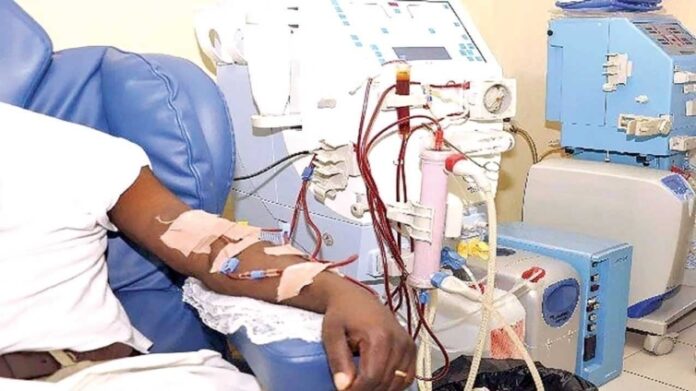Persons with kidney diseases are patronising services of private hospitals for dialysis following the closure of renal units in some hospitals.
Although private hospitals charge more, some patients say they are assured of better services and treatment.
As grueling as it may sound, persons with kidney diseases have to endure dialysis at least twice every week.
And with the current challenges experienced at most public dialysis centers, preferences may have changed for many.
Kwame (not his real name) traveled all the way from Cape Coast to Accra for dialysis, following the closure of the facility in his region.
“I came here because we had problem at our unit at Cape Coast Teaching Hospital. There has been a problem of quality-of-service delivery. So, the authority decided to close it down,” he said.
Upon arrival in Accra, he opted for a private hospital. Based on issues with service delivery.
“I can’t put my life at risk, so I prefer the private one to the government sector, even if in Cape Coast they have a private one I will opt for the private one,” he said.
Although the National Health Insurance Authority announced a subsidy for persons within his age gap, that directive is yet to be implemented.
For Kwame, the delay is making things more difficult.
“Coming from Cape Coast to Accra to do this, I have to spent more than GHC1,600. The facility is taking GHC660, T&T in and out. With our condition, we’re always tired and you can’t join the trotro, you will opt for an Uber or private vehicle, so it’s very expensive,” he lamented.
Private hospitals are seeing an influx of patients since the issues surrounding the renal units of public hospitals came to light.
Administrator for the Providence Specialist Hospital here in Accra, Freda Mensah, says that although the hospital charges GHC660, more patients are trooping in for dialysis.
“Our number has increased and it’s reasonable. Since Korle Bu increased their prices, it was an ideal thing for private hospital to also increase. But we didn’t do that, we stuck to our GHC660,” she explained.
Clearly, persons with kidney diseases might require urgent steps by the NHIA, to make treatment much easier.
By Judith Brown











